'Hellboy' director Neil Marshall says comic book movies are 'pure cinema' (exclusive)
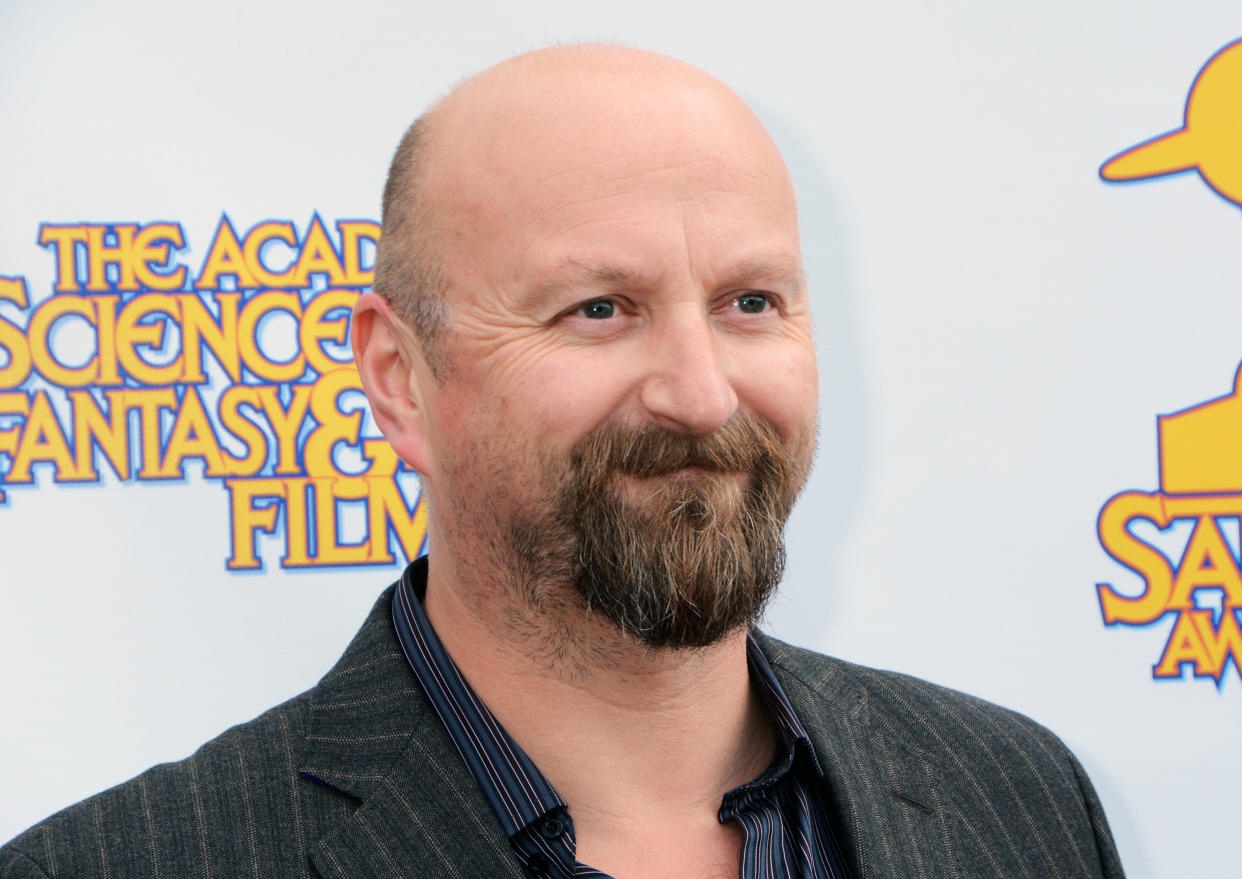
British director Neil Marshall has joined the ongoing debate about the value of comic book movies, saying that these films, and particularly the output of the Marvel Cinematic Universe, are “pure cinema” and “incredibly crafted”.
The debate was triggered by Martin Scorsese’s recent remarks comparing Marvel movies to theme parks and stating that they are “not cinema”.
Directors including Ken Loach, Francis Ford Coppola and Pedro Almodóvar have added their own criticisms of superhero films to the mix, while comic book filmmakers like James Gunn have defended their work.
Read more: Disney CEO responds to Scorsese and Coppola comments
Marshall, who remains best known for helming horror movie The Descent as well as several of the most acclaimed Game of Thrones episodes, directed comic book reboot Hellboy earlier this year.
The franchise revamp, starring David Harbour as the demonic antihero, received negative reviews, but this hasn’t soured the director on the comic book genre as a whole.
“Marvel is as much cinema as anything that [Scorsese] has made,” Marshall told Yahoo Movies UK in an interview to promote his new immersive horror experience Kraken Screamfest: Director’s Cut. “It’s pure cinema, Marvel is. You can’t segregate like that.”

Marshall added: “I totally agree [with Scorsese] in the sense that I wish that we were slightly less smothered with comic book and superhero movies, but you can’t say it’s not cinema. I don’t even know what that means.
“Those movies, regardless of what you may think about the fact there may be too many of them, are beautifully made, well-written, well-acted and incredibly crafted machines. You can’t really fault them for that.”
Read more: Samuel L. Jackson reacts to Scorsese comments
The director’s new venture has seen him join forces with Kraken Rum to create Screamfest: Director’s Cut, which is an immersive Halloween experience combining a haunted house with a bar.
“It’s going back to a more primal form of a horror experience,” said Marshall. “It was something fresh and different.”
This Halloween, The Kraken Rum brings you something very special indeed... Sign up to The League of Darkness to learn more about Screamfest... https://t.co/QihNrqLxFB#krakenrum #halloween #krakenscreamfest pic.twitter.com/2k6RAbgV25
— Kraken Rum UK (@KrakenRumUK) October 1, 2019
Marshall is currently hard at work editing his upcoming horror film The Reckoning, which takes on witch hunts in 17th century England, and preparing to make his first action film in Duchess, which he says is powered by “a strong female revenge plot”.
Read the full interview with Neil Marshall for his take on the legacy of horror movie The Descent, whether anything scares him any more, his upcoming movie projects and which Game of Thrones episodes he wishes he could’ve directed.

Yahoo Movies UK: Experiences like Screamfest feel to me like they’re taking horror back to its roots as something very simple. Is that something that appeals to you?
Neil Marshall: Well it’s certainly taking it back to something very primal and maybe, if you rewind it that much, early horror was more theatrically based. The audience was a little bit more interactive with what was going on. That’s what we’re doing here — removing the barrier that is the TV screen or the cinema screen and putting the audience right in the action. It’s going back to a more primal form of a horror experience.
As someone who has worked on films and on TV, what attracted you as a filmmaker to doing something so different, with no screen at all?
That’s exactly it — it’s something different. It’s something I’ve never done before. I’ve never done any kind of interactive event before. I’ve never worked in theatre before. So it’s a combination of all of those elements.
In some respects, it is essentially like making a movie, but just taking away the camera. We’re just setting up the story, setting up the characters, creating a world and putting the audience directly into that world as opposed to looking at it through a screen or a camera.
Read more: London hosts Pennywise horror experience
In many respects, it’s the same, but it also frees you up to ask what you can do with the audience to give it that greater impact. How can you interact with the audience? It’s not just a question of simply being there and standing and observing. We have them interacting with the story and with the action. It was a challenge. It was something fresh and different. It was also a combination of horror and a bar, which are two of my favourite things in the world, so it was perfect.
Where do you find that line of how dark and disturbing you can go with this while still allowing people to have a good time?
I don’t know. You just push it until someone says “stop”. With these horror experiences, certainly in the States, they’ve taken it to extreme levels of these interactive things that you can do and I do tend to think that sometimes they go a bit far. I think for something like this, there always has to be the essence of fun to it as well. It’s not just about torturing the audience. I want them to have fun while they’re having a few drinks, as well as a few jumps and scares along the way. I suppose it’s more akin to a rollercoaster, which is both terrifying and exhilarating at the same time. You want people to come off and be laughing and smiling and full of adrenaline, not saying: “Oh my God, I never want to do anything like that again.”
As someone who has created so many terrifying things, are you able to be scared by horror entertainment any more? Are you scared of the ones you create?
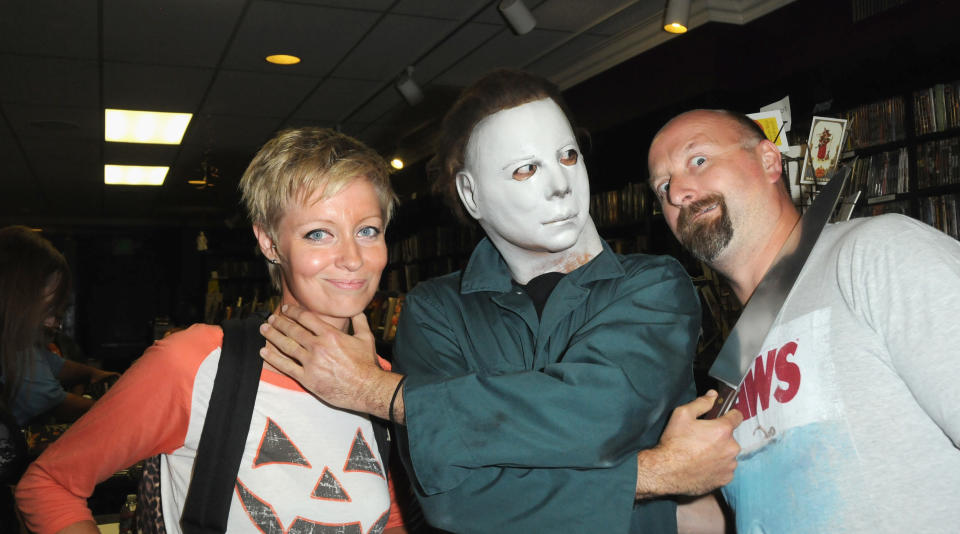
I’m not scared of the ones that I create. Also, I’m terrible when I go to these Halloween mazes every year. I go round with friends and they’re jumping and screaming, but I swear my heartbeat never goes above 80. I just don’t get scared. I love them and really appreciate them and have fun, but I don’t jump. I know where the shocks are coming from. I think things that scare me are just random weird stuff, like unexpected occurrences in life, tall buildings, spiders, things like that.
Read more: What happens to your brain when you watch a horror film?
The Descent is a film I absolutely adore. It’s 15 years old next year. What are your thoughts on its legacy?
It just makes me feel ancient. What can I say? To have made something that people are still talking about, still watching, as a filmmaker that’s what you aspire to and hope for. So I’m unbelievably proud of the whole thing and all of the amazing work that everybody put into it to achieve that. I love that it’s still got such a following and that it’s still screening regularly. I don’t want to be just known for The Descent of course but, if I was, that wouldn’t be a bad thing, would it?
I wanted to ask about the fact that the film had multiple endings...
No, it’s only got one ending. The other thing is... I don’t know what you’d call that, but that’s not an ending.
I was going to ask how you feel about it in retrospect, but you’ve sort of answered that question.
I think everybody kind of answered that question. Even the US distributor answered that question when they put it out on DVD. You can’t find the US theatrical ending anywhere any more, I don’t think. When it screens, it’s always the original UK ending now and I think people get that.
How did that alternative ending come about?
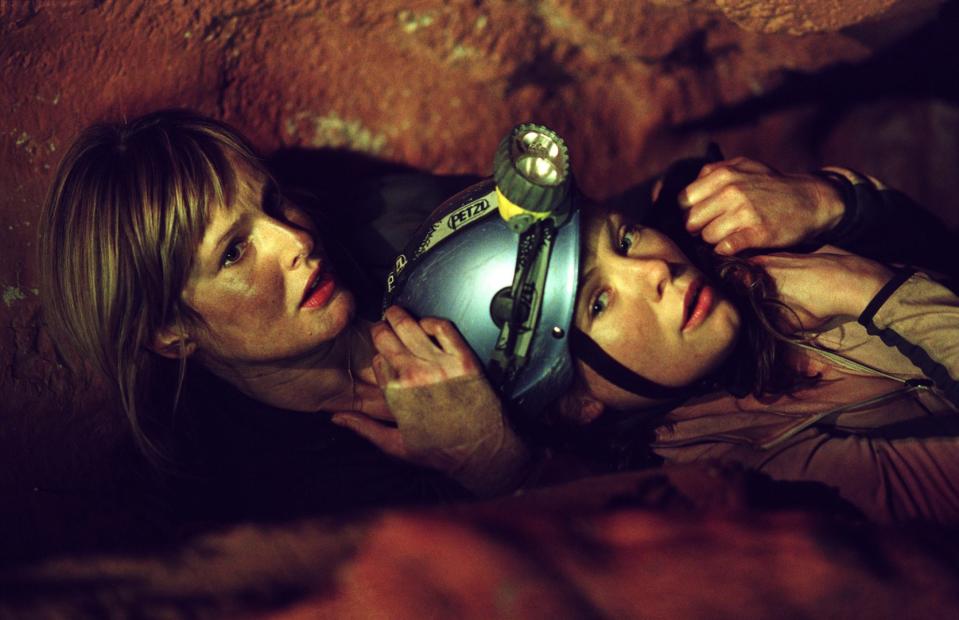
We were kind of made an offer we couldn’t refuse. We were hoping for a US release on the movie. It was a little British movie and we were hoping for a US release, then Lionsgate came forward and said: “We want to release it, but we did some test screenings and tried it with the new ending and the numbers went through the roof because someone survived at the end.” They said that, if we did that ending, they’d guarantee us 3,000 screens but, with the original ending, they’d only do 1,000 screens. So we were like “yeah, whatever”.
The weird thing was that, at that point, it was a year after the UK release and so anybody in the States could go on Amazon and buy the UK Blu-ray. It was already out there. So I figured that if anybody really wanted to see the original ending, they could find it, and so we agreed to let them trim a minute of the film at the end.
My whole argument was that their ending was way more bleak than mine. In my ending, she’s trapped in a cave but, in her mind, she’s with her daughter again and she’s found some kind of happiness even though she’s probably going to die, because she’s with her daughter.
Whereas, in the American ending, she escapes from the cave having either killed or witnessed the death of all of her friends. Her family is dead. Her daughter is still dead. She’s probably out of her mind with insanity. So what’s the happy ending there? I don’t see one.
I wanted to ask briefly about Game of Thrones, as the episodes you directed — season two’s Blackwater and season four’s The Watchers on the Wall — stand as some of my favourites.
It was a hell of an experience.
Read more: Game of Thrones stars confused by fan fury
I wanted to ask whether there were any episodes towards the end of the show that you wish you’d had the chance to do your thing with?
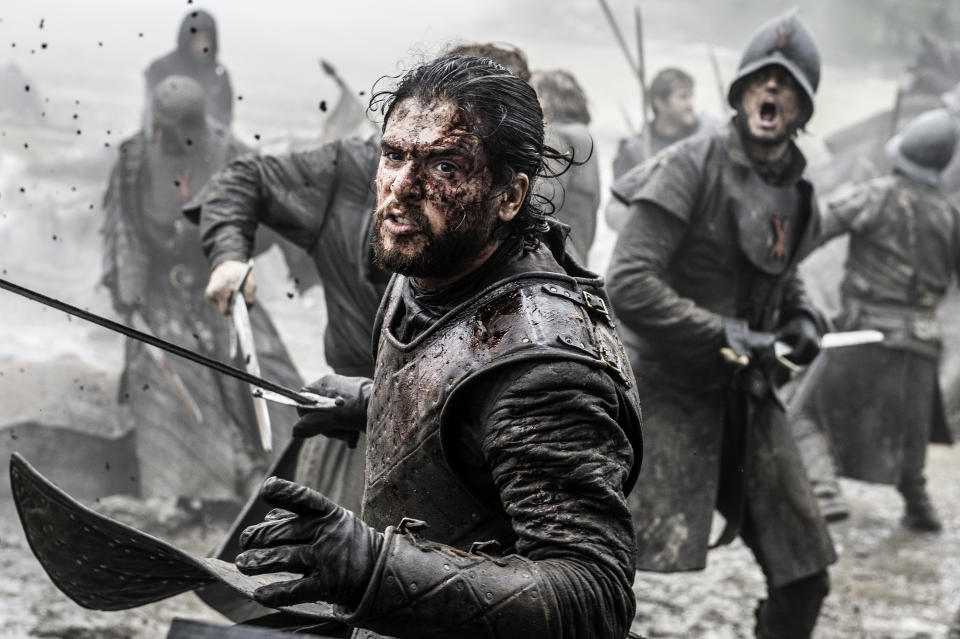
I certainly would’ve liked to have got hold of the Battle of the Bastards, and maybe the final battle as well. I like doing battle stuff. Honestly, I’m so proud of the two that I did and they made their mark on the show for sure. The first battle was quite an achievement.
I know you’ve got a couple of film projects in the offing, as well as TV work. Do you have a preference, or are you very happy to do both?
I’m very happy if I can skirt the two. TV is an amazing world to work in with this revolution that has taken place over the last 10 years. To have been a part of that with Game of Thrones and Lost In Space and Black Sails has been amazing and I want to continue to do that.
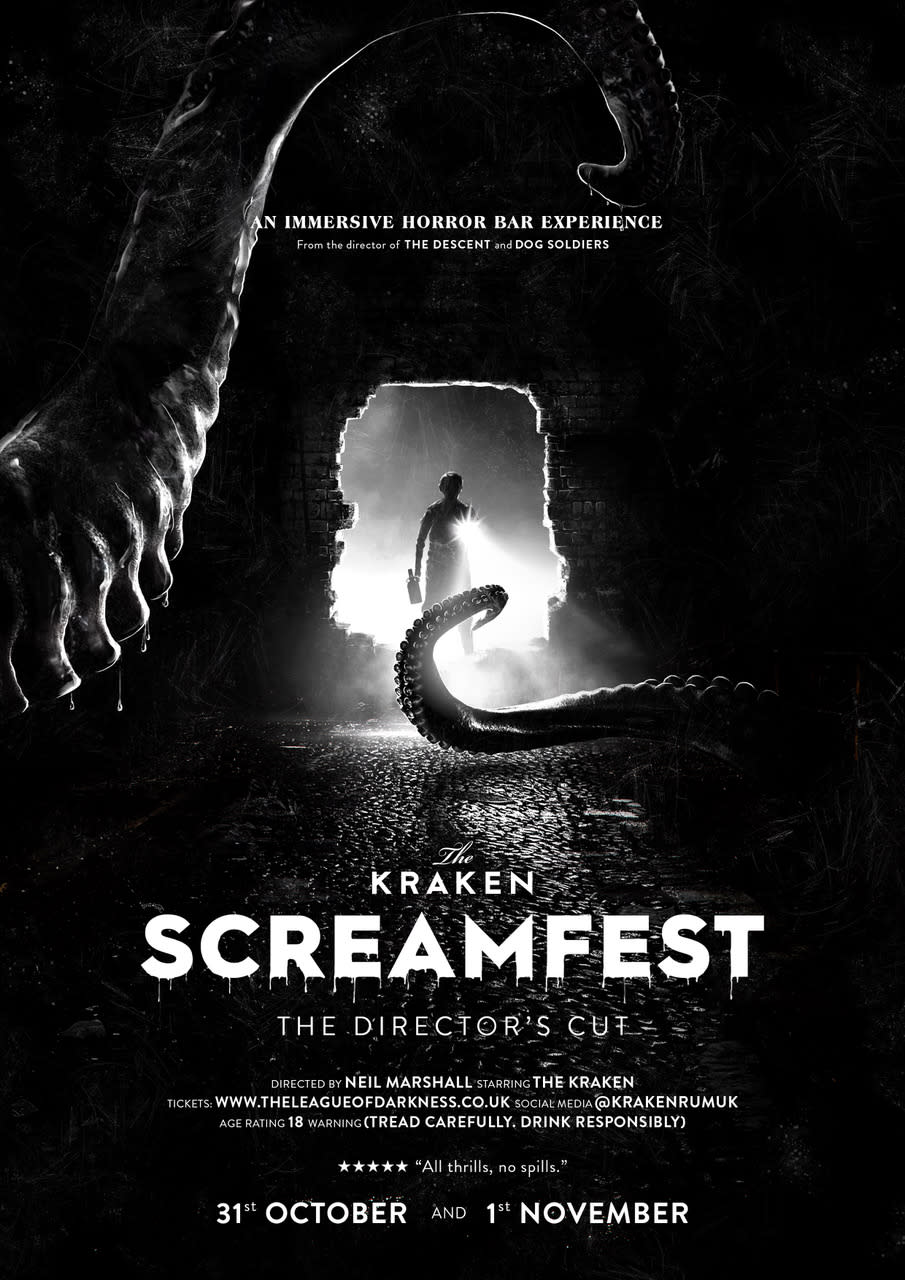
The only difference is that I would really like to create my own TV shows, which is something I’m doing right now. But I don’t want to leave the movie world. That’s where I started. That’s my passion and that’s what has got me doing this thing in the first place. So I still have many more movies to make if they’ll let me. I’m doing a new one right now and prepping a new one for next year — keeping busy.
So you’ve got The Reckoning, which I believe you’re editing now, and then Duchess as well. What can you tell me about those?
As you said, I’m cutting The Reckoning right now. I’ve just finished shooting that in Budapest over the summer. That’s a full-on horror story based around the witch hunts in 1665 — the year of the Great Plague in England. I don’t know what you’d describe it as really. Because it’s dealing with witch hunts, it’s very pertinent to the times, I think. Some things haven’t changed and it’s dealing with torture and persecution. Although, it’s not a torture movie. I’m not really interested in that kind of thing. It’s more of a psychological horror. I’m very, very excited about it and it looks absolutely beautiful. I hope I don’t mess up the edit.
Read more: Greatest horror sequels of all time
Duchess is my first foray into the kind of crime, action, revenge, gangster movie. I can’t say too much about that at the moment, but it’s an unusual take on a gangster movie with a strong female revenge plot in there.
Before I let you go, I wanted to ask you about Martin Scorsese’s comments about comic book cinema. As someone who’s made big blockbusters and comic book movies, what’s your take?
My response would be that you can’t categorise like that. Marvel is as much cinema as anything that he’s made. It’s pure cinema, Marvel is. You can’t segregate like that. I totally agree in the sense that I wish that we were slightly less smothered with comic book and superhero movies, but you can’t say it’s not cinema. I don’t even know what that means. Those movies, regardless of what you may think about the fact there may be too many of them, are beautifully made, well-written, well-acted and incredibly crafted machines. You can’t really fault them for that.
Kraken Screamfest: Director’s Cut will take place at a top secret London location on 31 October and 1 November, with tickets available here.

 Yahoo Movies
Yahoo Movies 
